Pediatric Electrophysiology and Arrhythmia
Learning that your child’s heart beats too slowly or too fast can be frightening for parents and children alike. When the heart beats irregularly, we say that the child has arrhythmia, and he or she might experience discomfort or a fluttering in the chest, dizziness, fainting, weakness, fatigue, shortness of breath, or no symptoms at all. Once we discover the exact type of arrhythmia that your child has, we get to work steadying your child’s heart so that he or she can live life as uninhibited as possible. Some arrhythmias don’t affect the health and growth of your child and only require regular monitoring or medication. Others need a catheterization procedure, surgery, or a regulating device. In any case, we can help.
Our dedicated pediatric electrophysiology team studies the electrical system of your child’s heart—just as an electrician might map the circuits of your house—to pinpoint the exact source and reason for the irregular heartbeat. We combine the latest technologies with experience and skill to diagnose and treat your child’s arrhythmia. We use the very latest diagnostic procedures and monitoring devices to ensure a highly accurate diagnosis. Then, we devise the best plan forward to care for your child’s unique needs in the most convenient and effective way possible.
Each year, our team sees more than 1,100 children with heart rhythm abnormalities, many traveling great distances for our services and expertise. If you live far away, we provide follow-up care via telehealth virtual visits so that you can visit with us from the comfort of your own home.
Our arrhythmia treatment options are second to none. We treat all types of childhood arrhythmia conditions, including those that are extremely rare. Our patients range from unborn infants with arrhythmias to adults with congenital heart disease.
We offer noninvasive heart monitoring to help assess the exact cause of symptoms. We also perform ablation procedures, which can cure many common pediatric arrhythmias. Additionally, we can place pacemakers and implantable cardioverter defibrillators for children whose hearts beat too slowly or who are at risk of life-threatening arrhythmias. We are a world leader in cardiac resynchronization therapy, a specialized pacemaker used to aid in the treatment of heart failure. Our electrophysiology research team continually investigates novel and innovative ways to treat your child’s arrhythmia and deliver outstanding care that brings hope to your family.
Our unique pediatric lead extraction program is paving the way in the West to safely remove and replace leads for implanted rhythm devices in children, and our premier inherited arrhythmia clinic employs the latest techniques and technology to care for children with arrhythmias before and after birth.
Why choose Stanford Medicine Children’s Health for heart arrhythmia
- High-quality care. When you receive care from us, you are receiving the very best care available for your child. The Pediatric Electrophysiology and Arrhythmia Laboratory at Stanford Children’s Health is one of just five pediatric accredited laboratories in the entire nation—and the only one on the West Coast. In 2020, we earned accreditation from the Intersocietal Accreditation Commission (IAC) in cardiac electrophysiology. This means that our procedures and protocols meet strict quality standards, safety standards, and patient care standards. Specifically, we are fully accredited in both performing ablation procedures and implanting pacemakers and implantable cardioverter defibrillators (ICDs).
- Treating the whole patient. At Stanford Children’s Health, we’re known for bringing the best minds together to care for your child—minds from multiple disciplines who each provide a unique perspective on your child’s heart condition and particular needs. By acting as a whole team for each and every child, we are able to treat all types of arrhythmias, even very rare conditions. In particular, we partner with genetics, fetal cardiology, cardiology, critical care specialists, cardiovascular intensive care, cardiac imaging, adult electrophysiology, heart transplant teams, and other pediatric specialties as needed to provide the utmost coordination of care.
- Family-centered care. We understand that it can be a challenge to manage your child’s arrhythmia. That’s why we invest a lot of time in educating you about your child’s condition. We also have a Pediatric Cardiac Psychology program where children and families learn how to best cope with having an ICD and how they can get in touch with resources to make life easier. Additionally, we expand access to care with convenient, at-home heart monitoring devices, including tele EKG and wearable EKG recorders (such as Zio patches) that allow our doctors to monitor your child’s heart condition with your help from the comfort of your home. These easy-to-use devices give high-quality results and are especially useful after high-risk procedures that make traveling difficult and for conditions that require regular monitoring.





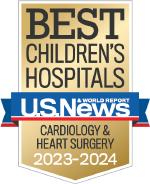
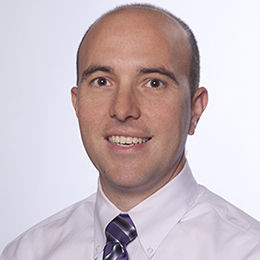


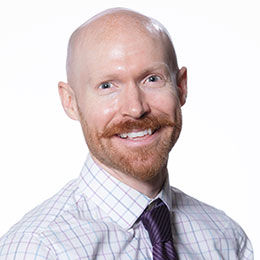
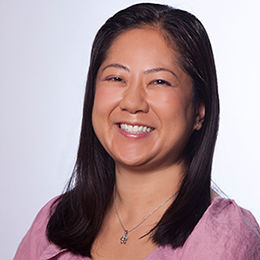

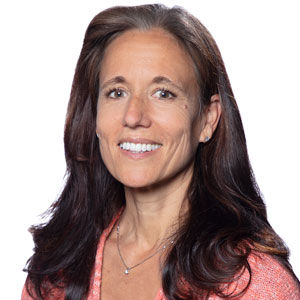
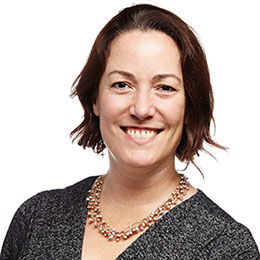
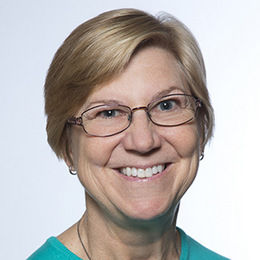
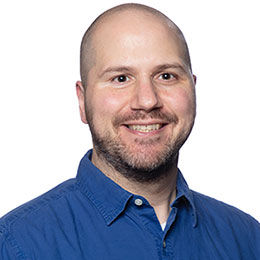
Connect with us:
Download our App: